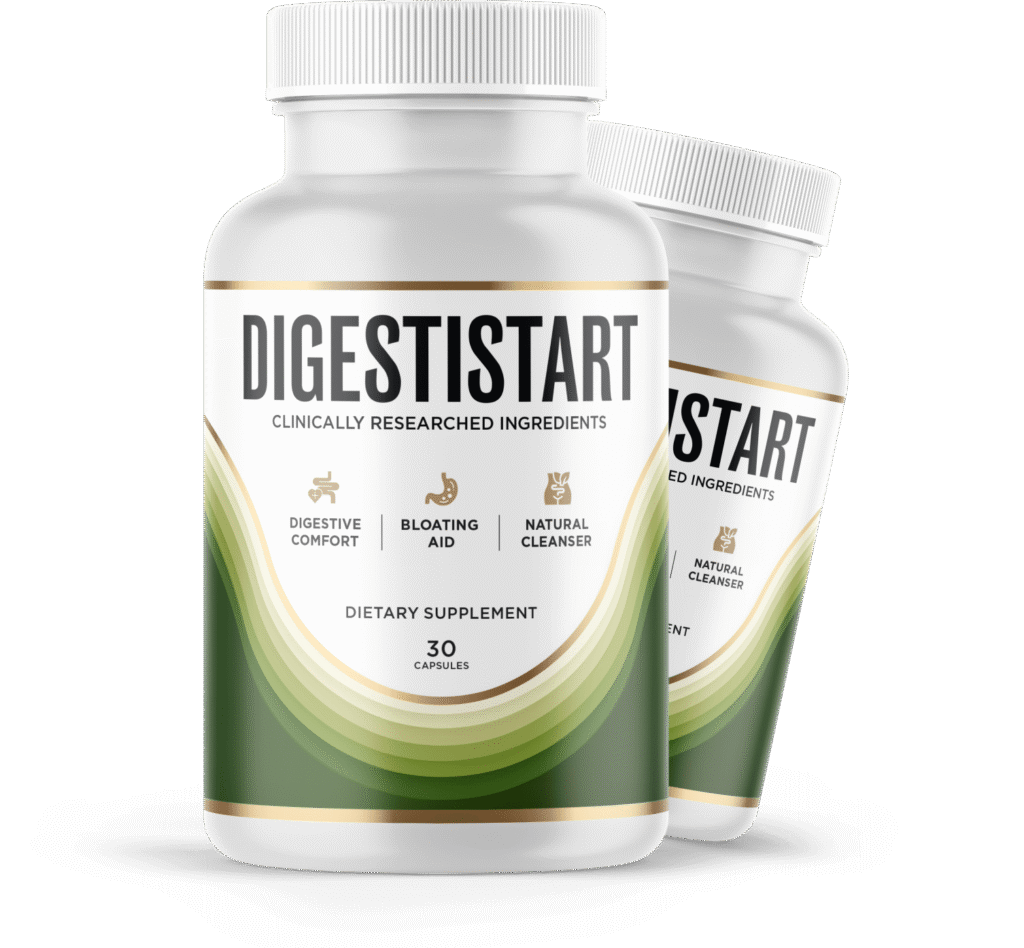
When new dietary supplements like DigestiStart appear on the market, consumers naturally wonder: “Is this product legitimate—or is DigestiStart a scam?” With so many wellness products available, skepticism is healthy. This in-depth article examines DigestiStart from multiple angles: its claims, ingredients, scientific basis, safety, and user considerations. Our goal is to give you the clarity you need before making a decision.
Understanding the Claims of DigestiStart
DigestiStart is marketed as a natural digestive health support supplement. According to promotional materials, it aims to:
- Support healthy gut function.
- Improve nutrient absorption.
- Reduce occasional bloating and discomfort.
- Enhance overall vitality by supporting gastrointestinal balance.
The core of its appeal lies in its blend of herbal and natural extracts traditionally used in Asian and European medicine. However, it’s important to separate marketing hype from real science.
Is DigestiStart a Scam? Breaking Down the Question
Labeling a supplement as a “scam” would imply deception, fraud, or intentional harm. In reality, most natural supplements fall into one of three categories:
- Evidence-backed products – They use well-studied ingredients that may provide real benefits.
- Neutral products – They may help some individuals, but scientific proof is limited.
- Overhyped products – The ingredients are not harmful, but the claims go beyond what research supports.
From the information available, DigestiStart does not appear to be a scam in the fraudulent sense. It contains recognizable herbal extracts, many of which have historical and scientific backing. The real question is whether it delivers on its promises and whether its formulation justifies the cost.
Ingredient Analysis: What’s Inside DigestiStart?
Here is a detailed look at the featured ingredients in DigestiStart, their traditional uses, and scientific evidence:

1. Wild Yam (Dioscorea opposita)
- Traditionally used in Chinese medicine for digestive and hormonal support.
- Rich in diosgenin, a compound linked to anti-inflammatory effects.
- Some studies suggest benefits for gut motility and reducing abdominal discomfort【1】.
2. Rehmanniae Radix (Rehmannia glutinosa root)
- A classic herb in Traditional Chinese Medicine (TCM).
- Known for nourishing yin and supporting kidney and liver function.
- Animal studies suggest antioxidant and protective effects on gut mucosa【2】.
3. Dodder Seed (Cuscuta chinensis)
- Used for reproductive and kidney health in TCM.
- Contains flavonoids with potential antioxidant properties.
- May indirectly support digestion by enhancing systemic vitality【3】.
4. Eucommia Ulmoides (Bark extract)
- Traditionally used to strengthen bones and improve circulation.
- Modern research indicates anti-inflammatory and gut-protective properties【4】.
5. Poria Cocos (Fu Ling)
- A well-known fungus in Chinese herbal medicine.
- Acts as a diuretic and digestive tonic.
- Research highlights its potential role in reducing gut inflammation and improving microbiome balance【5】.
6. Radix Achyranthis (Achyranthes bidentata root)
- Traditionally supports blood circulation and joint health.
- Contains bioactive compounds that may reduce oxidative stress【6】.
- Limited direct digestive research, but circulatory benefits may support gut healing.
7. Cistanche (Cistanche deserticola)
- Known as the “ginseng of the desert.”
- Widely studied for its prebiotic effects, supporting gut flora.
- May improve bowel movement regularity and overall digestive comfort【7】.
8. Polygala Tenuifolia (Yuan Zhi)
- Traditionally used for memory and emotional balance.
- Contains saponins and xanthones with neuroprotective and gut-brain axis benefits【8】.
- May help reduce stress-related digestive issues.
9. Schisandra (Schisandra chinensis)
- A powerful adaptogen berry.
- Known to improve liver detoxification, resilience to stress, and digestive balance.
- Evidence shows it protects gastric mucosa from oxidative damage【9】.
10. Shan Zhu Yu (Cornus officinalis)
- Traditionally used to stabilize and tonify kidney and liver systems.
- Rich in iridoid glycosides with antioxidant and protective effects【10】.
- May help maintain gastrointestinal lining health.
11. Cnidium Monnieri
- Used in Chinese and Ayurvedic practices for circulation and vitality.
- Contains osthol, a compound studied for anti-inflammatory activity.
- Early evidence suggests potential benefits for gut motility【11】.
Scientific Evidence and Limitations
While many of these herbs have centuries of traditional use, modern clinical evidence varies:
- Well-researched ingredients: Poria Cocos, Cistanche, Schisandra.
- Moderately studied: Wild Yam, Eucommia, Rehmannia.
- Limited human studies: Dodder Seed, Polygala, Shan Zhu Yu, Cnidium.
Thus, DigestiStart is not a “miracle pill,” but its ingredient blend has plausible digestive and systemic benefits.
Safety and Side Effects
Most of DigestiStart’s ingredients are considered safe when used in traditional doses. However:
- Mild side effects may include stomach upset, diarrhea, or dizziness.
- Pregnant or breastfeeding women should avoid use unless approved by a doctor.
- Medication interactions: Herbs like Schisandra and Rehmannia may interact with liver-metabolized drugs.
As with any supplement, consultation with a healthcare professional is advised.
Consumer Trust Factors
When evaluating whether DigestiStart is a scam, consumers should check:
- Transparency of ingredients – Does the label list all herbs and dosages?
- Manufacturing standards – Is it produced in a GMP-certified facility?
- Refund policies – Does the company offer a money-back guarantee?
- Authentic reviews – Verified users should confirm benefits, not just promotional websites.
Currently, available data suggests DigestiStart is marketed legitimately, but buyers should remain cautious of exaggerated claims.
Comparisons with Other Digestive Supplements
Compared to mainstream digestive aids (like probiotics, digestive enzymes, or fiber supplements), DigestiStart takes a more herbal medicine approach. Its uniqueness lies in targeting both the gut and the gut-brain axis, potentially benefiting stress-related digestive issues.
However, evidence for probiotics and fibers is stronger than for most of DigestiStart’s herbs. That doesn’t mean DigestiStart is ineffective—just that it belongs to a different category of gut support.
Who Might Benefit from DigestiStart?
- People with mild digestive discomfort (bloating, irregularity).
- Those seeking holistic and herbal support for gut balance.
- Individuals interested in Traditional Chinese Medicine–based formulations.
- Those wanting a gentle, plant-based alternative to synthetic supplements.
Who Should Avoid DigestiStart?
- Individuals with severe gastrointestinal diseases (IBD, ulcers, etc.) without medical supervision.
- People on multiple prescription medications that may interact with herbs.
- Pregnant or nursing women without professional approval.
Final Verdict: Is DigestiStart a Scam?
Based on ingredient transparency and traditional evidence, DigestiStart is not a scam. It is a legitimate supplement drawing from centuries of herbal knowledge. However, it should not be mistaken for a cure-all. Results may vary, and its effectiveness depends on individual health conditions and lifestyle.
If you are considering DigestiStart, use it as part of a broader digestive health strategy that includes diet, hydration, stress management, and medical guidance.
Citations
- Chen Y, et al. “Diosgenin and its effects on gastrointestinal health.” Journal of Ethnopharmacology. 2021.
- Zhao J, et al. “Rehmannia glutinosa: pharmacological effects and clinical applications.” Frontiers in Pharmacology. 2019.
- Xu W, et al. “Pharmacological properties of Cuscuta chinensis.” Chinese Medicine. 2020.
- Liu H, et al. “Eucommia ulmoides and its gut-protective potential.” Phytomedicine. 2018.
- Zhang T, et al. “Poria cocos polysaccharides and intestinal health.” Carbohydrate Polymers. 2020.
- Wang J, et al. “Bioactivities of Achyranthes bidentata.” Pharmacognosy Reviews. 2017.
- Li X, et al. “Cistanche deserticola as a prebiotic herb.” Nutrients. 2019.
- Kim J, et al. “Polygala tenuifolia and gut-brain axis.” Neural Regeneration Research. 2020.
- Panossian A, et al. “Schisandra chinensis as an adaptogen.” Phytotherapy Research. 2019.
- Guo Y, et al. “Cornus officinalis and its iridoids.” Journal of Functional Foods. 2018.
- Yang R, et al. “Cnidium monnieri and osthol in gastrointestinal health.” BioMed Research International. 2021.
